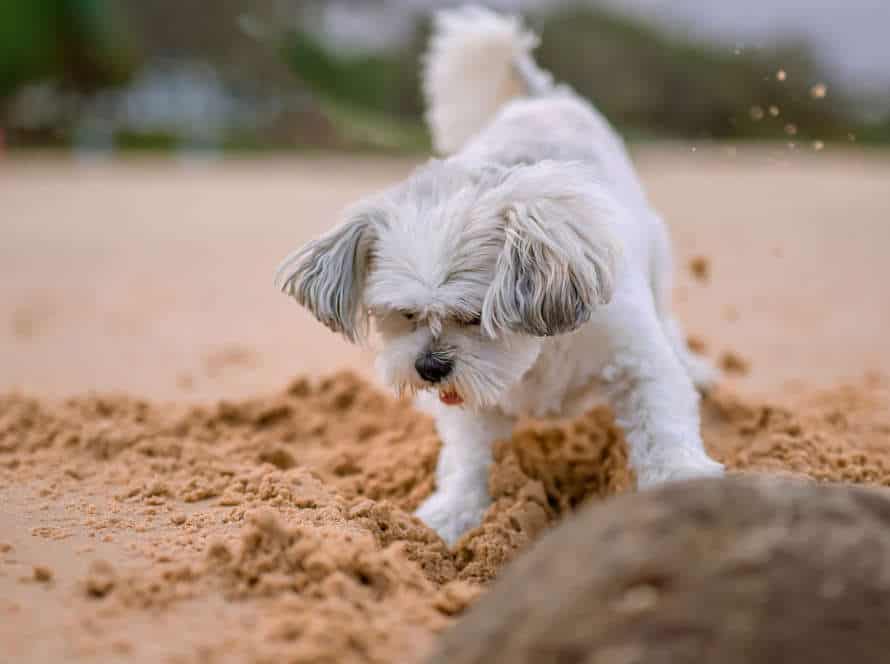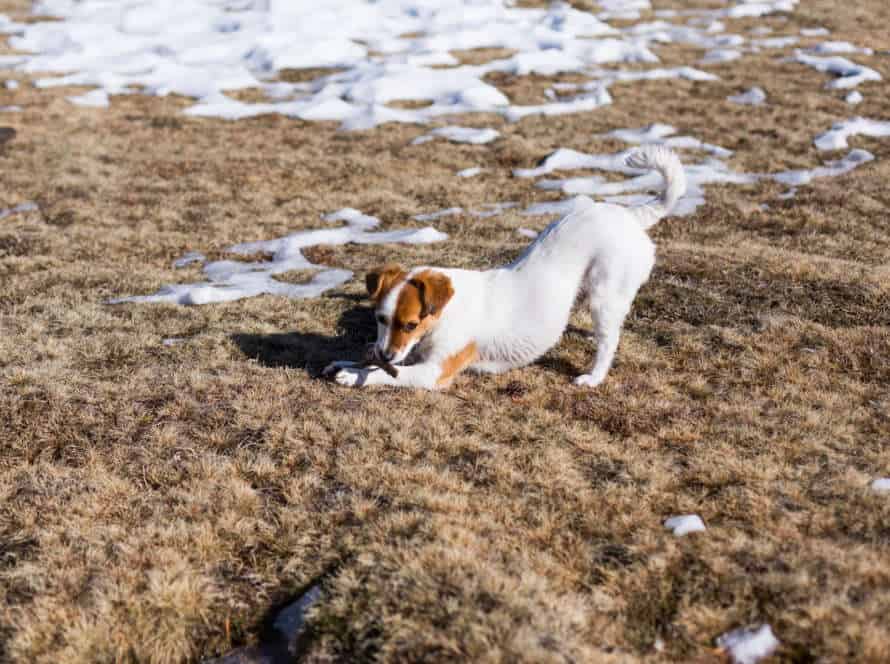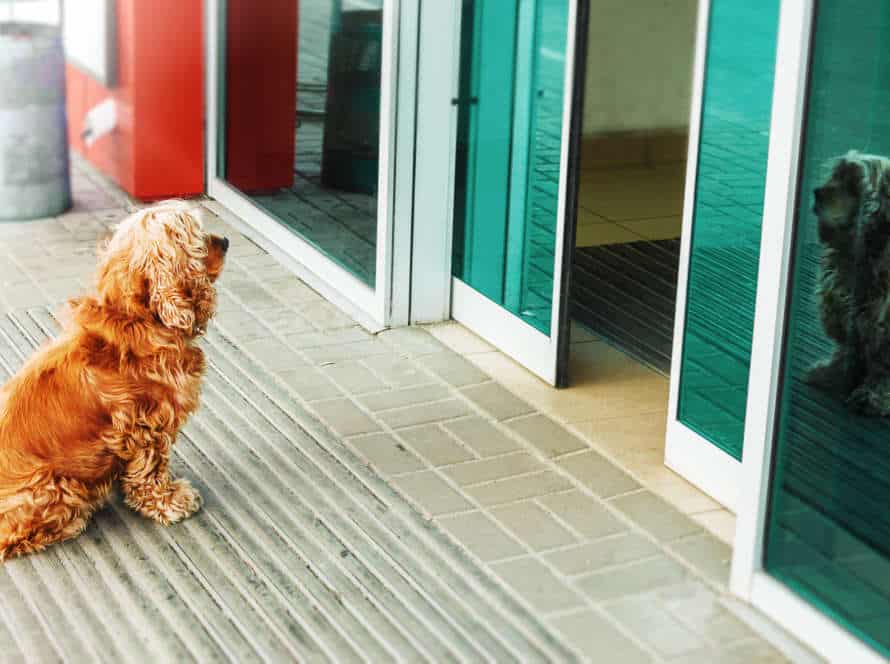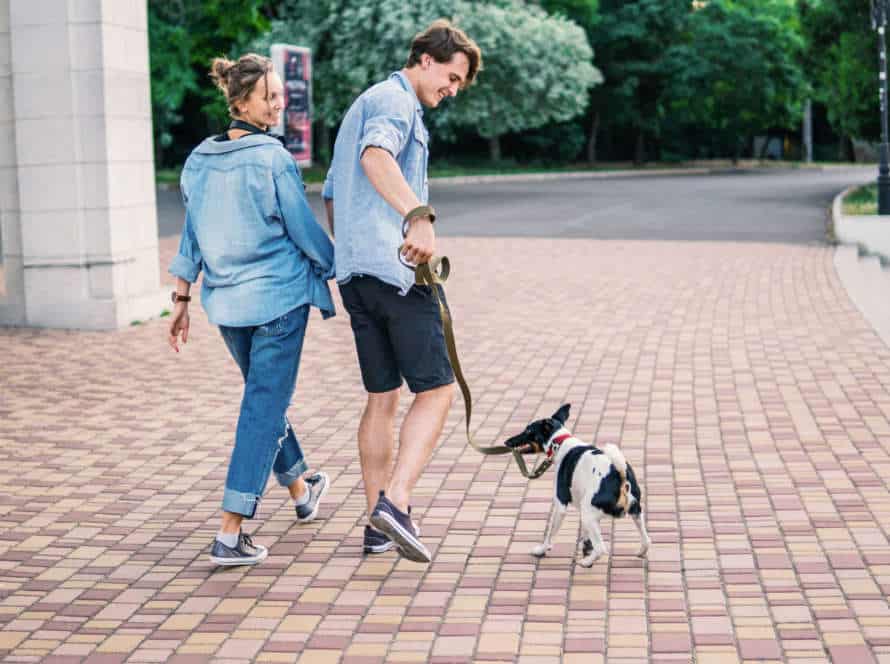How to Address Digging Issues in Adult Dogs
Dogs may dig for several reasons – boredom, anxiety or hunting instincts. To stop the habit, you need to know why they are doing it in the first place. Here are some tips:
- Give them both physical and mental stimulation. Make sure they get enough exercise and mental engagement.
- Reward any good behavior, like chewing on appropriate items or staying in the right area, with treats and praise.
- Consider training. A professional trainer might help find the cause of their digging behavior.
- Create a special spot for them to dig. Use sand and toys/goodies to guide them to the area.
- Discourage wrong digging. Distract them with toys or different activities. You could also use fences or bad smells to deter them.
With consistent and positive training, you can teach your adult dog to have healthy behaviors and stop digging.
Understanding Why Dogs Dig
Dogs love to dig! They often do it for a reason. Anxiety, boredom and looking for comfort are some of the reasons why. To stop the digging, it’s important to understand why they do it. Here’s a look at why dogs dig.
Natural Instincts
Dogs are born to dig! It has many purposes. To understand why your pup is digging, you must first figure out the reason. Here are some possibilities:
- Hunting – In the wild, they may dig to catch small animals.
- Territorial – Digging is a way of marking their space.
- Cooling down – Digging can provide them a refuge from the hot sun.
- Burying – Dogs may want to hide their favorite things in the ground.
To address this, find the root cause and provide an alternative. For instance, if the pup is digging for shade, give them access to a shaded area. Or, if they’re burying something, create a sandbox or a designated digging area.
Lastly, consistent training and exercise can help stop this behavior.
Boredom or Lack of Exercise
Dogs can dig due to boredom or lack of exercise. To understand why your pup diggs, you must figure out the cause.
- Boredom: Dogs are social and need physical and mental stimulation to be happy. If they don’t get this, they may dig out of boredom. Play with your pup and give them toys.
- Lack of Exercise: Exercise helps keep dogs healthy and content. If your pup needs more exercise, they may dig to release energy. Go for walks, runs, and do other physical activities.
- Pro Tip: If these don’t work, consult a veterinarian. There might be an underlying illness causing the digging.
Stress and Anxiety
Digging is a common behavior in dogs caused by stress and anxiety. To stop it, root causes need to be addressed. Here’re some strategies:
- Locate the source of your dog’s stress and try to fix it. You can make the environment calmer or give more chances to play and exercise.
- Provide your pup with other activities instead of digging. This can involve playing with toys or training exercises.
- Train your dog to stop digging when you command. Do this by catching them in the act and using a firm but gentle word.
- Use deterrents like fences, motion-activated sprinklers, or surfaces with strange textures to prevent digging.
- Work on the root causes of your dog’s digging to make them feel secure and content, and reduce the need to do it.
Prevention Strategies
Digging? A problem for grown-up doggos and their owners. Not to worry, though! There are ways to stop your pup from digging. Let’s have a look at preventative measures that can help.
Providing Adequate Exercise and Mental Stimulation
Exercise and mental stimulation are essential to stop and deal with digging issues in grown-up dogs. Being bored and anxious can cause too much digging. Here are a few tips:
- Walk, play fetch, or take your pup to the dog park for 30 minutes every day.
- Have plenty of toys, like puzzles, chews, and interactive games.
- Teach your pup new tricks or join training classes.
- Make sure your pup has fresh air and outdoor fun.
Remember, a tired and stimulated dog is unlikely to excessively dig.
Setting up a Designated Digging Area
Want to stop your adult dog from digging up your garden? Set up a special area just for digging! Here’s what to do:
- Choose a spot in your garden.
- Surround it with fencing or mulch.
- Hide some toys or treats in the area.
- When your pup is in the garden, stay close and reinforce boundaries.
- Reward them when they dig in the right place.
Consistency and positive reinforcement will help train your pup to only dig in the designated spot.
Using Deterrents
Dogs are diggers by nature, so it can be tough to stop them from digging up your yard. Thankfully, there are several ways to keep your pup from digging. Some prevention techniques for adult dogs include:
- Planting chicken wire or rocks around the edge of the garden or yard.
- Spraying the area with a citrus or vinegar mixture as a deterrent.
- Designating a space, such as a sandbox or planter, exclusively for digging.
- Increasing outdoor exercise and interactive playtime to channel the energy and boredom that often lead to digging.
- Employing a pet deterrent spray or device that emits an ultrasonic sound to stop the pup from digging in a particular area.
And of course, always reward your pup for good behavior and never punish them for digging. Positive reinforcement works best for redirecting your pup’s digging.
Training Techniques
Digging can be a normal behavior for dogs, and it can be a sign of boredom or stress in adult pooches! Thankfully, there are some training techniques that can help. These involve positive reinforcement, desensitization and environmental enrichment.
Let’s check them out in more detail and explore how they can help you reduce or stop the digging behavior in adult dogs.
Positive Reinforcement Training
Positive reinforcement training is a technique for training dogs. It rewards desired behaviors instead of punishing unwanted ones. Here’s how to use it to stop an adult dog from digging:
- Identify what triggers the digging.
- Redirect their attention with a treat or toy.
- Teach them a “digging free” command.
- Create a designated digging area or provide a sandbox.
- Reward good behavior & gradually decrease rewards as the behavior becomes habitual.
By using positive reinforcement, you can stop your dog from digging & build a strong bond.
Redirecting Behaviors
Digging is a normal habit for dogs, but it can be an issue if it begins to harm your yard or garden. Teaching your dog to dig in the right spot is a great way to stop digging problems in grown-up dogs. Use these steps:
- When your pup starts to dig in the wrong place, distract them quickly.
- Give them a toy or treat.
- Show them the right spot to dig – like a special area in your yard.
- Hide toys and treats in the soil to get them to dig there.
- Praise and reward them when they do it in the right spot.
- Then redirect them every time they start to dig elsewhere.
With patience and consistency, you can teach them to dig in the correct spot and protect your yard or garden.
Consistency and Patience in Training
Training your adult pup to quit digging needs consistency and patience for the best outcome. Here are the things to do:
- Figure out why your dog is digging – could be boredom, anxiety, seeking attention.
- Set up a special digging area – train your pup to use it with positive reinforcement.
- Catch them in the act – say “NO” firmly, distract them, take them to the digging area, then praise them when they dig.
- Stay consistent – this training has to happen each time they dig. Spend time & energy to train them.
- Have patience – the training will take some time, and there may be setbacks. Your pet wants to please you, so stay patient and consistent.
With consistent training and patience, you can stop your pet from digging in the wrong places and give them an allowed spot to meet their natural need.
Addressing Underlying Health and Behavioral Issues
Dogs dig. It is normal. Too much digging though? It can be a sign of an issue. To work out what is going on, you must look for the causes. Health and behaviour issues need to be looked at. To do this, you can find out why the dog is digging.
Consulting with a Veterinarian
If your adult pup is constantly digging, it might be a sign of a health or behavioral issue. Consulting a vet is key for tackling the digging problem. Here’s what to expect:
- Health check-up: The vet will examine your pup to rule out any medical problems such as skin sensitivities or hormonal imbalances.
- Behavioral assessment: They will ask you questions about your pup’s character, lifestyle, and home environment to find out any unique factors that could be causing the digging.
- Treatment plan: After assessing your pup’s health and behavior, the vet will create a specialized treatment plan. This could include medications, training, changing the environment, or a mix of these.
Talking to a vet is key to help your pup overcome their digging and stay healthy.
Identifying and Addressing Separation Anxiety
Is your pup suffering from separation anxiety? Here are a few things to look out for:
- Destructive behavior
- Excessive barking
- House soiling
- Self-injury
Start by leaving for short periods and then gradually increasing the time.
Distract your pup with toys and food puzzles while you’re away.
If the anxiety persists, consider seeking professional help such as a dog trainer.
It’s also important to check with your vet if the behaviour is caused by underlying health issues.
To address digging issues in adult dogs, provide a designated digging area in your yard. Train your pup with positive reinforcement techniques and supervise them while they’re outside.
Managing Territorial Behaviors
Managing territorial behaviours in dogs needs attention to underlying health and behavioural issues, especially when it comes to adult dogs and their digging problem.
Figure out if the digging stems from boredom, play, or separation anxiety.
To tackle the issue in adult dogs, here are some tips:
- Provide zones for digging and encourage your dog to use them. Fill it with sand or soil and add their favourite toy or treat.
- Increase your dog’s physical and mental activity. Take them for a walk or run, and give stimulating toys or puzzles.
- Address any separation anxiety. Desensitize them to being alone and reward them for staying calm.
- If it is due to boredom, explore obedience or agility classes, or hire a professional dog walker.
- If you still have trouble controlling the digging behaviour, consult a professional dog trainer or behaviourist to make a personalized training plan to reduce unwanted territorial behaviour.
Conclusion: Addressing Digging Issues in Adult Dogs is Possible with the Right Strategies and Techniques.
To sum up, it’s possible to tackle digging behavior in grown-up pooches with the correct approaches and techniques. Here are some useful tips:
- Give your pup a certain digging area, such as a play box or a part of your garden, and reward them when they use it.
- Boost their physical exercise and mental activity to lessen boredom and too much energy that could cause digging.
- Deploy deterrents like chicken wire, stones or pebbles, or motion-sensitive sprinklers to put off digging in unwelcome places.
- Train your dog with basic commands and positive reinforcement to switch their behavior.
Keep in mind, tackling digging requires patience, regularity, and a friendly attitude towards your furry pal. With effort and dedication, you can teach your pet to dig in suitable areas and prevent harm to your garden or yard.
Pro tip: If your pup’s digging goes on, find advice from a professional dog trainer or a vet to check for any medical or behavioral issues.
Frequently Asked Questions
1. Why is my adult dog suddenly digging holes in my yard?
There could be various reasons for this sudden behavior change in your dog, including boredom, anxiety, territorial behavior, or lack of exercise. It is important to identify the underlying cause and address it accordingly.
2. How can I prevent my dog from digging in unwanted areas?
One way to prevent digging is by providing your dog with a designated digging area, such as a sandbox or specific part of your yard. You can also use deterrent sprays or cover areas with rocks or plants that are less appealing for digging.
3. Should I punish my dog for digging?
No, punishing your dog for digging will not solve the underlying issue and can create a negative association with you or the yard. Instead, redirect their behavior and reinforce positive actions through training and positive reinforcement.
4. How much exercise does an adult dog need to reduce digging behavior?
The amount of exercise required varies depending on the breed and size of the dog. In general, adult dogs should receive at least 30 minutes to 1 hour of exercise daily to reduce boredom and release energy.
5. Can digging in adult dogs be a sign of a medical condition?
In some cases, excessive digging can be a sign of an underlying medical condition such as allergies or skin irritation. Consult with your veterinarian to rule out any medical issues and determine the appropriate treatment plan.
6. Can professional dog training help address digging behavior?
Yes, working with a professional dog trainer can help identify the underlying cause of digging behavior and develop a personalized training plan to address it. It is important to choose a trainer with experience and positive reinforcement techniques.







